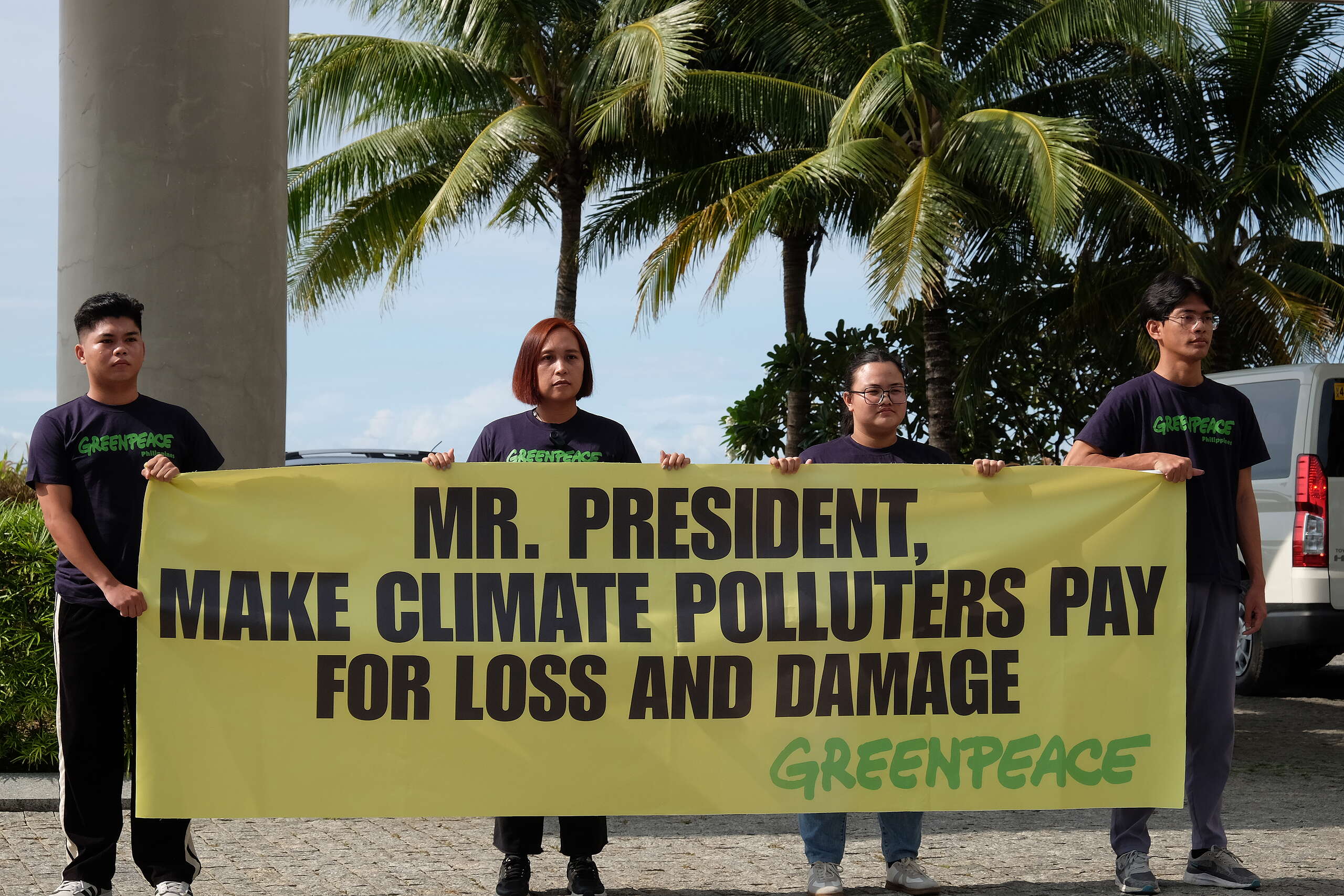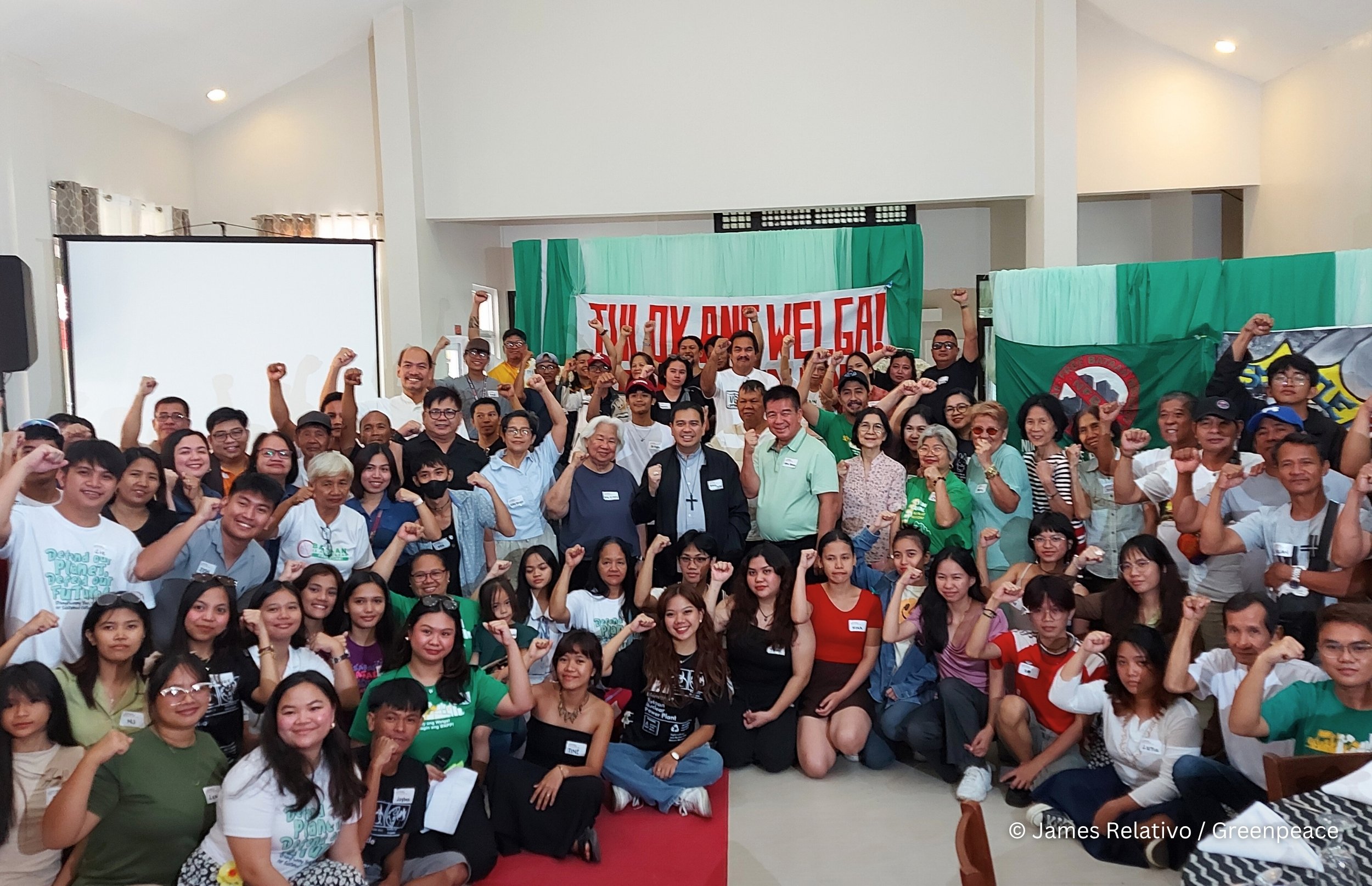Extreme rising sea levels and flooding is a threat to coastal cities. Greenpeace East Asia selected seven cities in Asia (Manila, Bangkok, Hong Kong, Jakarta, Seoul, Taipei, and Tokyo) that are economic centers and are located on or close to the coast to analyze how their gross domestic product (GDP) could potentially be impacted by extreme coastal flooding in 2030 with the business-as-usual (BAU) carbon-emission scenario, also called the RCP8.5 scenario. The analysis suggests how the climate crisis may affect the economies of the cities analysed in less than one decade unless we act immediately to achieve a rapid reduction in greenhouse gas emissions.
Related Posts
-

Greenpeace at Loss and Damage meeting: PBBM, make climate polluters pay!
Climate polluters must pay for loss and damage: this was the message that Greenpeace activists sent to President Ferdinand Marcos Jr at the opening of the sixth meeting of the Board for the Fund for Responding to Loss and Damage (FRLD) at Sheraton Cebu Mactan Resort in Lapu-Lapu City.
-
![[Blog] WHEN THE TIDE BECOMES THE TEACHER](https://www.greenpeace.org/static/planet4-philippines-stateless/2025/06/95c8411e-9a04f785-4293-46a6-a6cf-425f0a384682.jpg)
[Blog] WHEN THE TIDE BECOMES THE TEACHER
Did you know that in Batasan, a small island in Bohol, there’s a classroom that floods during high tide?
-

Greenpeace Philippines Throws Full Support Behind Bataan Communities vs. Nuclear Revival
We stand in solidarity with the brave residents, grassroots organizations, and activists in Bataan as they mark the 40th anniversary of Welga ng Bayan Laban sa BNPP (“People’s Action Against the Bataan Nuclear Power Plant”).
